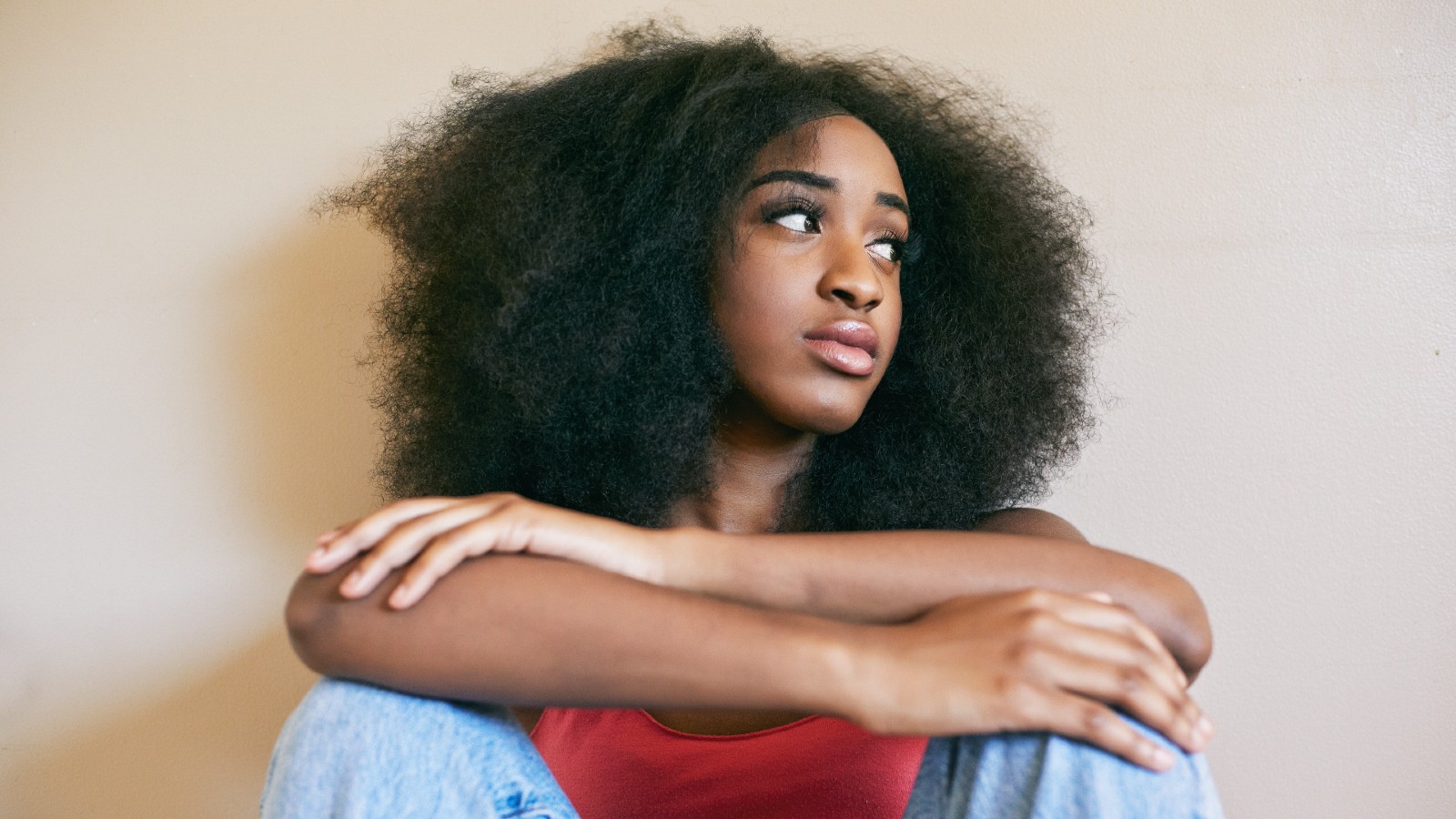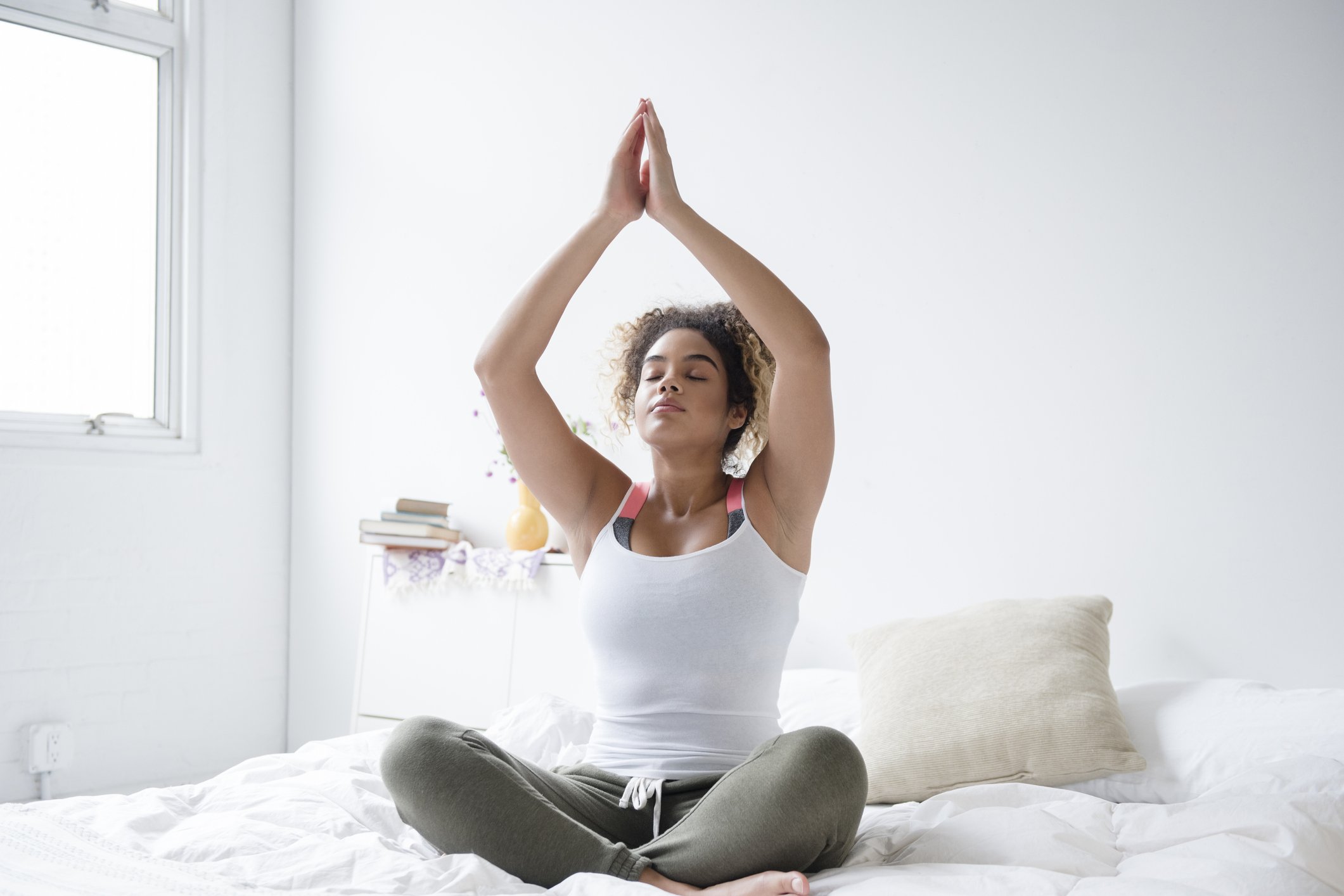Are you "alonely" and how can you fix it?
Ever wondered what the opposite of lonely was? Meet "alonely"


We’ve been hearing a lot about loneliness in recent months—about how loneliness is making us more creative, about how it's making people buy sex dolls for Christmas (seriously!), and about all the effects it's having on our physical and mental wellbeing. But what about the opposite?
Are you feeling like you can’t remember the last time you were alone and you’re craving just a moment's peace from your never-ending lockdown rage, your home office, or even your significant other? Well, you’re not alone—and there’s even a term for it.

What is Aloneliness?
"Aloneliness" is a term coined to mean the opposite of lonely. It describes those who crave solitude and are being deprived of it. Recently for many of us, we’ve been unusually thrust into 24/7 living with either our families, roommates or romantic partners, and it’s causing some of us to experience aloneliness.
Virginia Thomas, Ph.D.—a psychologist whose research examines solitude and its connections to identity, personality and well-being—has explained in Psychology Today how to know if you’re alonely. If you are someone who likes solitude and aren’t getting enough of it, you might be feeling irritable, drained and overwhelmed. Dr. Thomas says that seeking alone time is a completely normal and acceptable thing to do.
Alone time done in the right way can be beneficial—if it’s sought after by choice, in small doses and balanced with some regular socializing. If you are someone who finds it a way to unwind, reset and clear your mind, being unable to catch a moment on your own will make you feel frustrated and even burnt out.
What to do if you're alonely
There is an easy fix to aloneliness and it is to simply be alone. In practice, however, that can be a lot harder than it sounds, especially if you live with other people, have children or are working from home.
So researchers say to deliberately carve out and schedule some time for yourself, even if that means calling a family meeting and telling them to leave you alone for an hour. Engineering an amount of time where you know you won’t be disturbed might be just the thing to help you feel alone.

Thomas says that, if a lot of alone time is not realistic for you, quality over quantity may be the approach: “Even brief snatches of solitude, if spent engaging in truly pleasurable and meaningful activities, may be enough to alleviate feelings of aloneliness.” Whether it's reading a chapter of a book or some journaling for beginners, a session with one of your best meditation apps, or simply a warm bubble bath, it can be anything that makes you feel like you had some time alone with your thoughts.
As for that feeling of guilt over wanting to be by yourself, forget it. It’s normal to need a break from others. Think of your alone time as necessary self care!

Naomi is a Lifestyle News Writer with the Women's Lifestyle team, where she covers everything from entertainment to fashion and beauty, as well as TikTok trends for Woman&Home, after previously writing for My Imperfect Life and GoodTo. Interestingly though, Naomi actually has a background in design, having studied illustration at Plymouth University but lept into the media world in 2020, after always having a passion for writing and earned her Gold Standard diploma in Journalism with the NCTJ.
Before working for Future Publishing’s Lifestyle News team, she worked in the Ad production team. Here she wrote and designed adverts on all sorts of things, which then went into print magazines across all genres. Now, when she isn’t writing articles on celebs, fashion trends, or the newest shows on Netflix, you can find her drinking copious cups of coffee, drawing and probably online shopping.